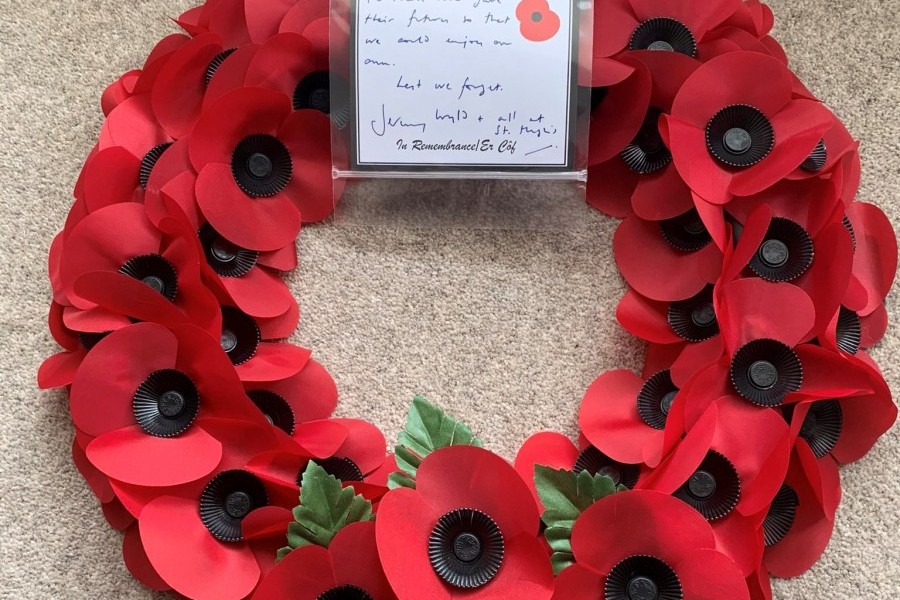Headmaster’s Remembrance Address
11 November 2020
In this most unusual of years, we are gathering today to mark our own moment of Remembrance. Sadly, because of the situation we are unable to gather in church with the public to remember, in particular to remember the connections that we have with the Armed Forces locally and also to commemorate those who still serve on our behalf across the school.
But, we can meet on a much smaller scale, to take a moment and to reflect on those who sacrificed their own futures so that we could enjoy our own.
Many of you will have missed wearing a poppy. This is because of the impact that coronavirus has had on the ability of the British Legion to sell them. This is why you haven’t seen them on sale although we have our wreath and we have made a donation to the British Legion. The poppies that you can see show that we remember. Poppy wearing started after the end of World War One; poppies grew in the fields that had been the terrible battlefields of France and Belgium. This area became known in part as Flanders Fields, the title of a poem by a Canadian doctor, John McCrae, after the death of a friend killed in battle in 1915. This is a short extract:
In Flanders fields the poppies blow
Between the crosses, row on row,
That mark our place; and in the sky
The larks, still bravely singing, fly
Scarce heard amid the guns below.
November is the 11th month of the year; it was at the 11th hour of the 11th day of the 11th month that World War One ended back in 1918. At 11 o’clock in the morning, the guns fell silent. Every year Remembrance Day reminds us of this moment and there is a 2 minute silence. Ours is not a silent world. There is noise all around us, so silence is special. Silence is good for remembering. It helps us to stop thinking about ourselves, what is happening right now but instead we can reflect.
Remembrance Day is a time of sadness but also a time of hope. The hope of a better, more peaceful world for all of us.
On the first Remembrance Day in 1919, the first year after the war ended, people gathered in cities, towns and villages to remember those who had fought and died.
We now remember a war that began over 100 years ago, but we also now remember those caught up in other wars, all over the world. We also now remember that good can come from bad and that enemies can become friends.
The closing paragraph comes from a Laurence Binyon poem called “For the Fallen”. Its use is widespread throughout the Commonwealth and it describes very poignantly how those who fought and died gave their lives before their time and how we have a duty to remember them now and forevermore.
“They shall not grow old as we that are left grow old. Age shall not weary them, nor the years condemn. At the going down of the sun and in the morning, We Will Remember Them”.

